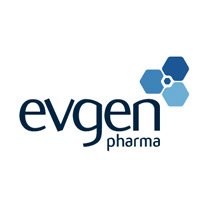Evgen Pharma Plc (LON:EVG) Chief Executive Officer Dr Stephen Franklin caught up with DirectorsTalk for an exclusive interview to discuss their successful IPO, their previous attempt and the broccoli angle
Q1: Now Stephen, the FT recently released a headline ‘Broccoli powers UK pharma group to float’, what’s the broccoli angel with Evgen Pharma?
A1: Well, the popular press, I think, is attracted to the broccoli angel to the story and I understand why that do that because of the human interest element but the bottom line though is that our pharmaceutical product is not extracted from broccoli or any other natural origin. So back in 1992, a small molecule called sulforaphane was discovered as an anti-cancer agent and this can be derived from broccoli, essentially when you eat it, the intestine digests a larger molecule and make small quantities of sulforaphane. Chemists then learnt how to make sulforaphane synthetically but it’s so unstable it could never become a medicine and this really is where our breakthrough comes into play, our technology produces a stable sulforaphane which can be formulated into a medicinal format such as a pill. 2 important points really is firstly, we don’t extract sulforaphane from broccoli, we chemically synthesise it, and secondly, one cannot get an appropriate and reliable dose of sulforaphane from a dietary source of broccoli so I think put simply, nature gave us the molecule but we’ve had to learn how to manufacture and stabilise it for pharmaceutical use. That’s the broccoli angle to the story.
Q2: Evgen Pharma attempted an IPO last year, can you tell us what happened?
A2: A number of things like all these kind of transactions. I think with hindsight, there was a convergence of perhaps bad luck and also the company trying to raise too much capital at the time for a company at our stage of development in the UK. One of the investment funds that said they would cornerstone the IPO went through an internal restructuring at the eleventh hour and that had a knock-on effect so in short, we were left trying to build an investment book around the support of just one blue chip cornerstone whereas originally we had three. So we fell short of getting to that critical tipping point where you’re trying to fill an investment book, you get the bigger players in then the small institutions pile in behind them and because we lost a critical cornerstone earlier on, we never really got to that tipping point so we had to rethink our strategy at that stage.
Q3: Last month you were successful in your IPO when others had to pull out, what’s the difference this time?
A3: I think we do a number of things differently second time round so we all learn something. The first thing we did is we did a pre-IP so we completed what was actually in the end an over-subscribed pre-IPO funding round raising £2 million and then we immediately rolled into an IPO process and our attempt this time was just to raise a third of 5 so collectively of course that would give us 7. That £5 million rapidly, as part of the IPO process, became 7, giving us a total of 9 and that’s where we closed the book, in fact we left some demand on the table so we left some residual demand in the market which is good as well. So I think they key thing is we kept the support of the blue chip institution from the first attempt at the IPO and I think their support was always a major catalyst for our success second time round. We built momentum ahead of the IPO through the pre-IPO and we worked with some very good people on route and some credit must go to a firm in the North West called Acceleris Capital who helped us with the pre-IPO and Northland Capital Partners who helped us with the IPO. I think the bottom line is everybody went into that transaction knowing it would happen because we were going for a smaller amount, we knew it was obtainable and I think that kind of confidence then drives a self-fulfilling prophecy where everyone wants to be part of the transaction.


